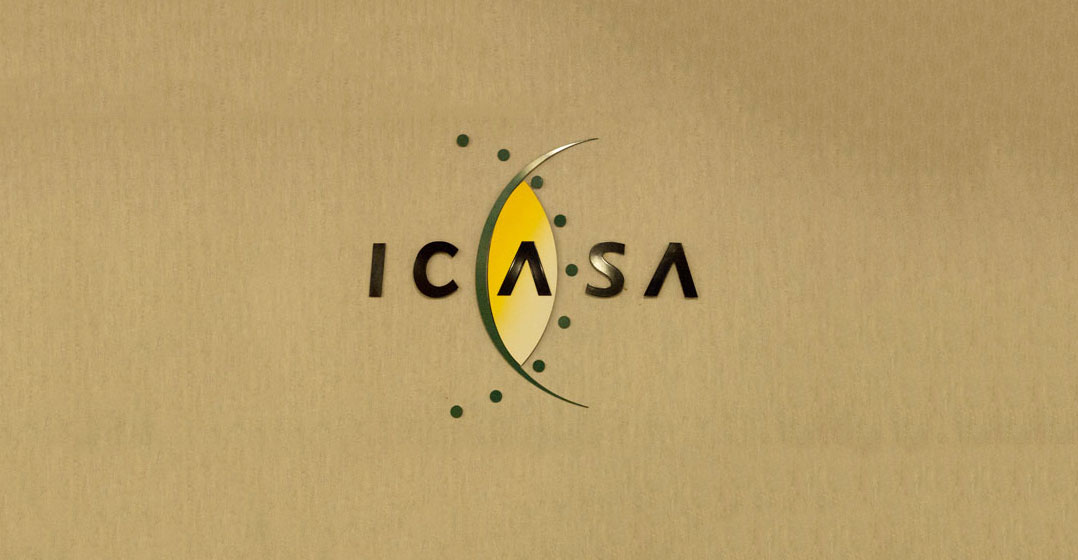
On 26 November, Icasa licensed provisional spectrum in terms of the Covid-19 state of disaster regulations to the six operators that requested access. The licences are valid for seven months, from 1 December 2021 to on 30 June 2022.
The reader who does not follow the regulator’s trials and tribulations on a daily basis might ask how this provisional spectrum licensing differs from Covid-19 emergency spectrum that was temporarily assigned on 20 April 2020.
There are three answers. First, at the time the regulator did not envisage that carriers would use temporary spectrum beyond the end of 2020. Remember that Icasa had planned to carry out a spectrum auction in 2020 still, which was then postponed to March 2021. When Icasa published the details of its licence scheme, particularly the flawed opt-in scheme, immediate legal action ensued. It has now been more than 15 years that Icasa has withheld immensely valuable spectrum resources, with the opportunity cost to the ordinary South African consumer running into hundreds of billions of rand.
Icasa chairman Keabetswe Modimoeng emphasised that the provisional — replacing the temporary – assignments are an interim measure and recommitted the regulator to conducting a spectrum auction, this time planned to be carried out by March 2022. In the meantime, according to Modimoeng:
This provisional licensing phase attempts temporarily to address competition concerns and levy appropriate fees, but a more all-inclusive regime will be yielded through a competitive bidding approach. […] Through this provisional spectrum assignment arrangement and its related fees, the authority will in the short term raise about R200-million for the national fiscus.
Second, carriers have begun to roll out infrastructure in frequency bands in which they did not operate in before. This was what carriers were expected to do to cope with the Covid-induced demand increase for broadband data. Grudgingly, Icasa had to face up to the fact that it could not just take away spectrum because it had a regulatory label “temporary”. After all, carriers such as MTN and Vodacom began to roll out and operate costly radio equipment in frequency bands in which they were denied spectrum for 15 years, notably in the 2.6GHz band. With the provisional spectrum licensing, Icasa creates some legal certainty until such time the auction might eventually happen.
Third, and most importantly, there are some slight changes in the allocation of spectrum that cast a shadow ahead on the auction design. Here it has to be understood that MTN, Telkom and Vodacom undertook legal action in stopping Icasa from taking back temporarily assigned spectrum at the end of November 2021. At the same time, MTN and Telkom both sued Icasa for the proposed auction format, though for very different reasons. While MTN’s action was premised on the auction design’s flawed opt-in scheme, which would have posed an existential threat to its commercial future, Telkom invoked the threat of an allegedly unfair auction result.
Regulatory lobbying
As always, Telkom tries to achieve through regulatory lobbying what it cannot achieve by means of competing in the market. In basically all advanced mobile markets, there are a maximum of two key carriers that serve 80-90% of the consumer base. With only MTN and Vodacom having a countrywide footprint, South Africa is no different. Typically, those leading carriers also have relatively more spectrum than their smaller peers.
Not so in South Africa, where the regulator busies itself with cosmetic concerns of competitive fairness. It denies the firms most important to generate consumer value the resources to do so. As a result, the regulator assigned the carriers serving 80% of the market less than 30% of permanent spectrum. This is unparalleled globally. Icasa lives in a dangerous parallel universe where ideology and power politics leave no room to think about consumer benefit.
With the new provisional licence framework, Icasa has assigned the same 446MHz of spectrum to the carriers that it had under the temporary scheme. Again, however, Icasa buckled under Telkom’s lobbying effort, which led to a reduction of MTN’s and Vodacom’s spectrum across all bands. In the 700MHz and 800MHz bands, they were cut short by 10MHz each, giving this to Rain. As a wholesale carrier, Rain is utilising its spectrum on behalf of MTN and Vodacom anyway.
 This is much more palatable to adherents of competitive cosmetics because it appears so much fairer to spread spectrum more evenly and across more parties. However, since the ultimate goal of any regulatory mandate is to serve the interest of the consumer, the question must be asked whether this makes sense. As MTN’s and Vodacom’s utilisation of these spectrum resources would yield the highest market price, it is likely that these resources eventually end up being used by them.
This is much more palatable to adherents of competitive cosmetics because it appears so much fairer to spread spectrum more evenly and across more parties. However, since the ultimate goal of any regulatory mandate is to serve the interest of the consumer, the question must be asked whether this makes sense. As MTN’s and Vodacom’s utilisation of these spectrum resources would yield the highest market price, it is likely that these resources eventually end up being used by them.
This is what already happens in South Africa. As MTN and Vodacom cannot access spectrum resources directly through acquisition of ownership, they are forced into roaming agreements with other carriers which in a free market would not exist.
Should the provisional assignment be indicative of what MTN and Vodacom are able to bid for in the digital dividend band of 700MHz and 800MHz, then consumers would again bear the brunt cost-wise. With only 20MHz of spectrum, it will be much more expensive to roll out infrastructure in rural areas than with the 40MHz as foreseen in the previous invitation to apply (ITA) for the auction that was planned for March 2021.
The irony is that the spectrum in the 700MHz and 800MHz bands cannot be utilised properly anyway, because it is “dirty”. There is widespread interference in these bands because government has messed up the digital migration, which was foreseen to be completed by 2011 (and which was completed all over the world by 2015).
In the 2.6GHz band, MTN’s and Vodacom’s spectrum was reduced from 50MHz to 40MHz each. Telkom gave up 40MHz in this band for an additional 20MHz in the 2.3GHz band, which was assigned to Vodacom under the temporary scheme. This makes sense, because Telkom does not operate in the 2.6GHz band and Vodacom is not in the 2.3GHz band.
Finally, MTN’s and Vodacom’s stake in the 3.5GHz band was reduced from 50MHz to 40MHz. It is Cell C that, under the provisional licences, has received new spectrum of 20MHz in both the 2.6GHz and 3.5GHz bands. As in the case of Rain, Cell C has been moving to become a wholesale carrier, utilising other carriers’ radio and tower infrastructure while MTN and Vodacom roam on Cell C’s frequencies.
Anti-consumer
As a result, MTN’s spectrum has been reduced from a 140MHz of temporary spectrum to a 100MHz of provisional spectrum, and Vodacom’s from 160MHz to 100MHz. Hence, 100MHz goes to other carriers, leaving MTN and Vodacom with 200MHz.
Unfortunately, such regulatory moves do nothing to improve competition for the consumer’s sake. Again, it just forces MTN and Vodacom to utilise the same spectrum resources through roaming agreements, which under normal circumstances they would employ directly.
Of course, the provisional spectrum assignments must be understood as a result of backdoor negotiations between Telkom on the one side of the table and MTN and Vodacom on the other side. With a view to finally paving the way for a spectrum auction, this arrangement might be considered a breakthrough. It can only be hoped that the concrete spectrum design does not repeat past mistakes of overloading it with ideologically motivated and economically harmful restrictions that will make it impossible to accept by MTN and Vodacom. Icasa must remember: MTN and Vodacom serve 80% of the South African mobile customer base.
 Like it or not, it is the spectrum that goes to these two carriers — and the competition between them — that makes a difference for South African consumers. In the greater scheme of things, Cell C, Liquid Intelligent Technologies and Rain are wholesale partners to MTN and Vodacom. Telkom, in turn, is a remnant of the past whose moderate success has been a function of having received not only more abundant spectrum, but spectrum in frequency bands that MTN and Vodacom were denied. If Telkom were as effective in the market as it is in its political lobbying efforts, it would not have to lobby. With 102MHz of provisional spectrum, Telkom managed to receive even slightly more than MTN and Vodacom, leaving it with 244MHz, or roughly 25% of total spectrum, still far more than the 186MHz and 181MHz of MTN and Vodacom.
Like it or not, it is the spectrum that goes to these two carriers — and the competition between them — that makes a difference for South African consumers. In the greater scheme of things, Cell C, Liquid Intelligent Technologies and Rain are wholesale partners to MTN and Vodacom. Telkom, in turn, is a remnant of the past whose moderate success has been a function of having received not only more abundant spectrum, but spectrum in frequency bands that MTN and Vodacom were denied. If Telkom were as effective in the market as it is in its political lobbying efforts, it would not have to lobby. With 102MHz of provisional spectrum, Telkom managed to receive even slightly more than MTN and Vodacom, leaving it with 244MHz, or roughly 25% of total spectrum, still far more than the 186MHz and 181MHz of MTN and Vodacom.
Now that the new spectrum ITA has been published, it can only be hoped that the backdoor negotiations yield an auction design in the interests of consumers. This will be the case if, first, all bidders are able to bid for at least some spectrum in those bands critical for their long-term commercial survival. Second, the ability to freely share — and ideally trade — spectrum in order to allow MTN and Vodacom to tap into the spectrum resources they cannot acquire through the auction at market prices without red tape and regulatory paternalism. The key economic argument is that an economic resource must be freely tradable in the first place to attract market-based pricing and be employed in the best interest of consumers.
Invariance thesis
The key insight was formulated by Ronald Coase in his landmark paper, “The Problem of Social Cost” (1960), and became known as the Coase-theorem (or, alternatively, the “invariance thesis”), earning him the Nobel Prize in economics in 1991: As long as tradability of resources is guaranteed, the initial allocation of ownership rights does not matter; free trade will ensure that the resources are employed by those firms that put them at the uses best for consumers. This explicitly includes leasing and sharing agreements.
Spectrum withheld for decades, spectrum assigned on purely political or ideological motives (for example, government’s planned wholesale open-access network), or spectrum tendered off in costly, artificial auction structures, harms consumers across the globe, but particularly so in South Africa where enormously valuable spectrum resources have been idle for 15 years now. Let’s hope the years of destructive regulation are over.
- Dr Christoff Klein is MD of dotadvisors, a consulting firm specialising in ICT economics, networks and strategic & transaction services. He has over 20 years of international consulting and investment banking experience specialising in the ICT industry, with assignments in more than 20 countries across all continents. He holds two master’s degrees in economics and recently completed his PhD in economics on the systematic non-accountability that results from state ownership and public financing of infrastructure. A key focus of his PhD thesis is on spectrum economics and value chain dynamics in the ICT market.

